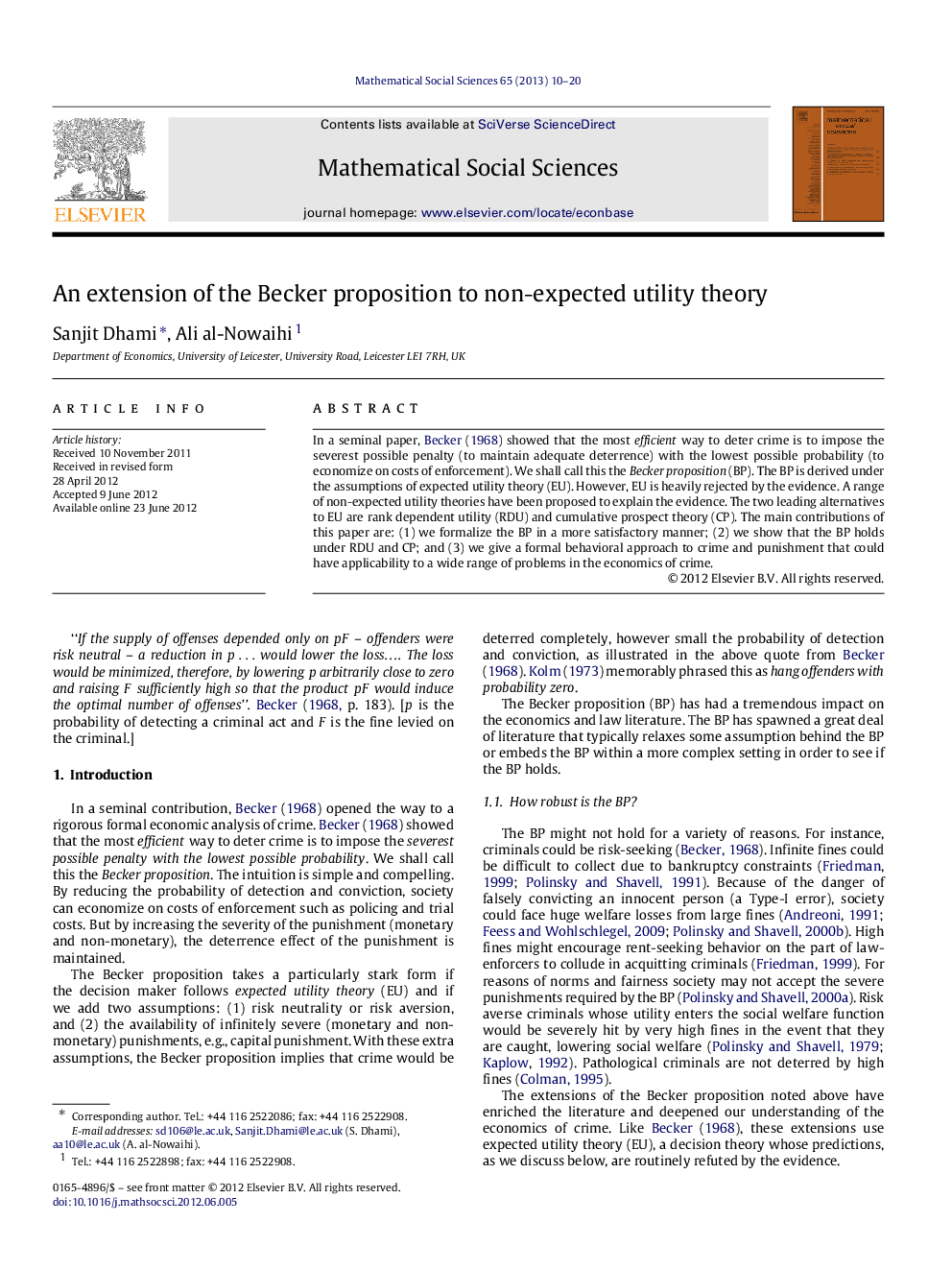| کد مقاله | کد نشریه | سال انتشار | مقاله انگلیسی | نسخه تمام متن |
|---|---|---|---|---|
| 972868 | 932698 | 2013 | 11 صفحه PDF | دانلود رایگان |

In a seminal paper, Becker (1968) showed that the most efficient way to deter crime is to impose the severest possible penalty (to maintain adequate deterrence) with the lowest possible probability (to economize on costs of enforcement). We shall call this the Becker proposition (BP). The BP is derived under the assumptions of expected utility theory (EU). However, EU is heavily rejected by the evidence. A range of non-expected utility theories have been proposed to explain the evidence. The two leading alternatives to EU are rank dependent utility (RDU) and cumulative prospect theory (CP). The main contributions of this paper are: (1) we formalize the BP in a more satisfactory manner; (2) we show that the BP holds under RDU and CP; and (3) we give a formal behavioral approach to crime and punishment that could have applicability to a wide range of problems in the economics of crime.
► The Becker Proposition (BP) is the basis of modern law and economics.
► The BP, based on expected utility (EU), gives the most efficient way to deter crime.
► EU is refuted. Rank dependent utility (RDU) and prospect theory (CP) do better.
► We propose a behavioral model of crime with RDU and CP preferences.
► We also demonstrate the robustness of BP by showing it holds under RDU and CP.
Journal: Mathematical Social Sciences - Volume 65, Issue 1, January 2013, Pages 10–20